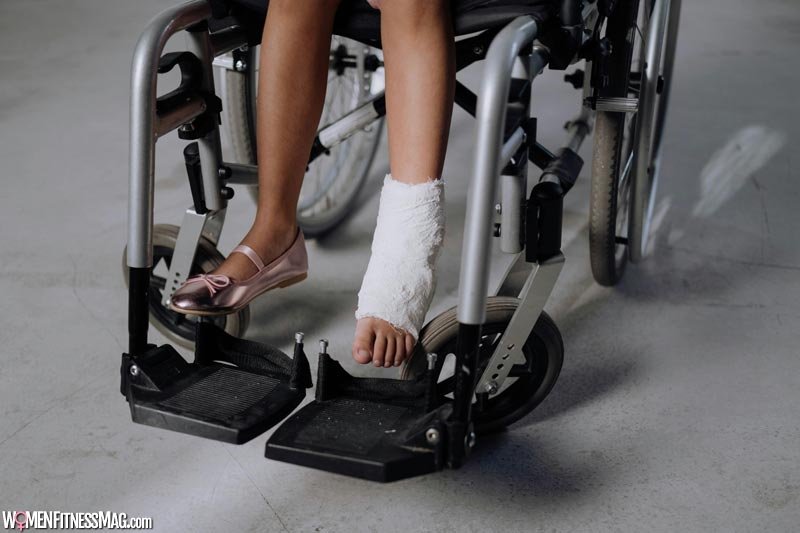The Future of Orthopedics: Innovations That Are Changing Lives : The realm of orthopedic medicine is witnessing a remarkable era of transformation, fueled by groundbreaking innovations that promise to redefine patient care and recovery processes. This dynamic field, dedicated to diagnosing, treating, and managing disorders of the bones, joints, ligaments, tendons, and muscles, is experiencing an influx of advanced technologies and methodologies.
These advancements are enhancing the precision and effectiveness of orthopedic treatments and significantly improving the quality of life for patients around the globe. Finding an orthopedic clinic has never been more crucial for those looking for cutting-edge care in this field, as these specialists are at the forefront of adopting and implementing these life-changing innovations.
Revolutionizing Treatment: Minimally Invasive Procedures
For many years, orthopedic surgery traditionally relied on open procedures requiring large incisions into the body. However, one of the most notable advances has been the emergence of minimally invasive techniques. These methods utilize smaller openings and aim to lessen trauma to tissues and organs. In doing so, they are redefining expectations for patient recovery. Operations that once necessitated extensive downtime and higher chances of complications are increasingly giving way to options, causing less invasion.
Minimally invasive surgeries offer many advantages, such as reduced suffering, lower risk of infection, speedier return to everyday activities, and minimal scarring. As a result, patients are experiencing swifter and more comfortable recoveries, marking a pivotal shift in post-surgical care. These techniques allow healing with less disruption, leading to outcomes that benefit patients and an evolving healthcare system. While more research continues, minimally invasive approaches promise further progress in improving patient well-being.
Harnessing the Power of Robotics and AI
Integrating robotics and artificial intelligence into orthopedic care pushes boundaries by enhancing what’s possible. Robotic surgeries guided by AI algorithms are improving the accuracy and precision of procedures. These technologies enable surgeons to plan operations with unprecedented detail, improving outcomes and fewer complications. Furthermore, AI’s role in diagnosing conditions, forecasting surgery results, and customizing rehabilitation plans is making patient care more efficient and tailored for each individual.
The synergy between robotics, artificial intelligence, and human expertise is shaping a new era of orthopedic surgery focused on safety, precision, and personalized care tailored to each patient’s unique situation and needs. These technologies work together with surgeons to plan operations with a level of detail that until recently was difficult to achieve, allowing for procedures that prioritize improved outcomes and fewer issues after surgery. AI also assists in understanding conditions, anticipating surgery outcomes, and planning customized rehabilitation programs for individual patients.
The Emergence of 3D Printing in Orthopedics
3D printing technology allows doctors to revolutionize how they create treatment plans for orthopedic issues and develop prosthetics. This innovative process enables the formation of customized implants and surgical instruments explicitly tailored to each patient’s unique anatomy. Implants designed for individual patients fit more naturally, improving function and comfort. In addition, 3D printing substantially reduces the time and expenses associated with manufacturing orthopedic devices, helping to make personalized care more accessible to more people. The new ability to quickly prototype and generate custom surgical tools and implants as needed is a real game-changer, paving the way for surgeries that are more precise in their targeting and better aligned with each patient’s specific requirements.
The Role of Regenerative Medicine
Regenerative medicine presents promising new approaches within orthopedics for healing and recovery. Techniques, including stem cell therapy, platelet-rich plasma injections, and tissue engineering, are being studied as options instead of standard surgeries. These methods utilize the body’s inherent healing abilities to mend harmed tissues, providing potential for conditions once considered impossible to treat. The capability of regenerative medicine to decrease requirements for intrusive procedures, relieve suffering, and improve mobility offers hope for individuals coping with long-term illnesses or injuries.
These developing techniques seek to rejuvenate injured areas by stimulating the body’s natural mending processes rather than relying solely on surgery. Further research continues to explore the applications and effectiveness of strategies like stem cell treatment and tissue regeneration to repair damage without invasive measures whenever feasible. For patients facing chronic conditions leaving few alternatives, regenerative solutions represent an encouraging study area with the potential to enhance lives.
Conclusion
The future of orthopedics appears to be developing right before us, characterized by a period of innovation that guarantees to rework patient care. The change towards minimally invasive techniques, coupled with the developments in robotics, synthetic intelligence, 3D printing, and regenerative medication, isn’t just bettering surgical results but is additionally improving the general patient experience.
These innovations are making treatments more exact, recuperation times more limited, and surgeries more secure, at long last changing lives for the better. While these new advances promise numerous advantages, it is essential that patients continue getting the customized consideration they require. Techniques will keep on evolving as specialists keep on searching for approaches to give the most secure and viable care conceivable.
The Future of Orthopedics: Innovations That Are Changing Lives
What is the future of orthopedics?, What are the innovations in orthopedic surgery?, What is the future of robotics in orthopedics?, What is new in orthopedics?, future of orthopedic surgery, innovations in orthopedic surgery, technology used in orthopedic surgery, new orthopedic devices, innovation orthopedics,




